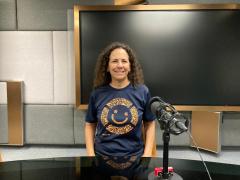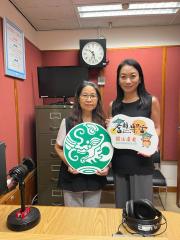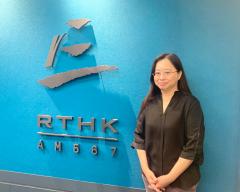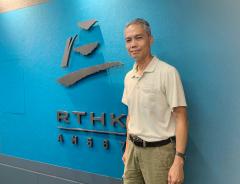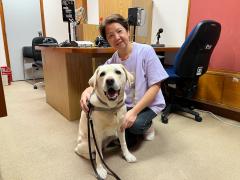簡介
Listen to #Hashtag Hong Kong every Sunday morning at 8.15
Focussing on issues affecting civil society, we'll hear from representatives of NGOs, associations, statutory bodies, and non-profit groups.
(Sundays 8.15am - 8.25am)
最新
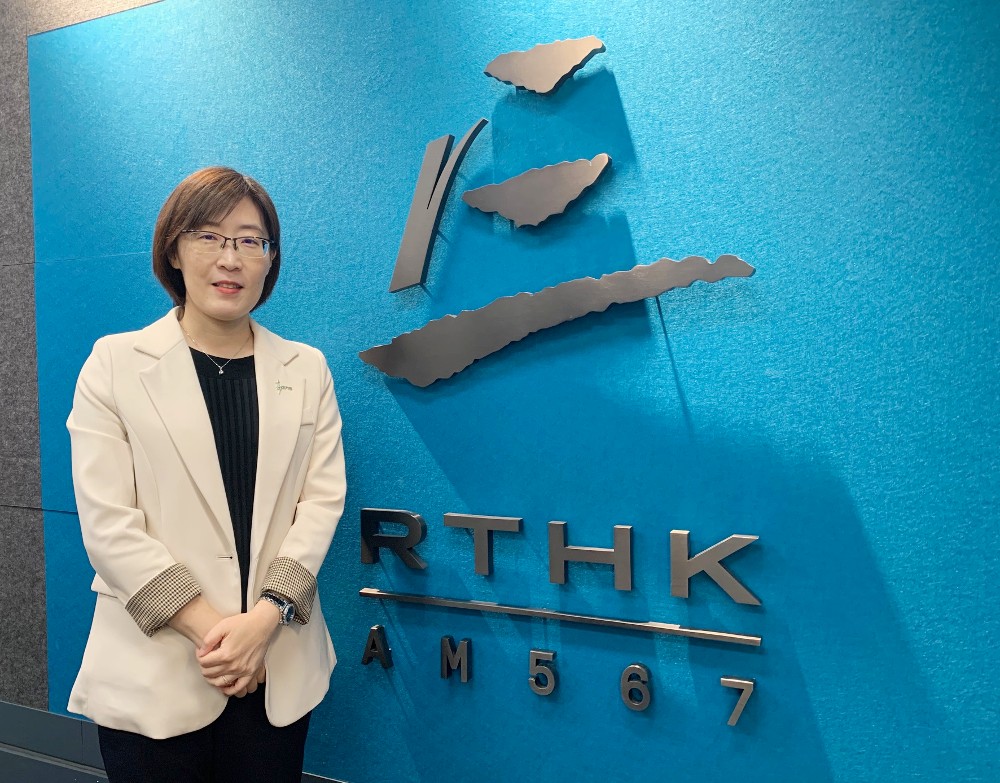
Hsu Siu-man, Executive Director, The Hong Kong Federation of Youth Groups
重溫
Dana Winograd, CEO & Co-Founder of Plastic Free Seas
Why is this July different from all other Julys?
Tomorrow, July 1, is not only the anniversary of the establishment of the Hong Kong SAR. It is also the first day of Plastic Free July, an annual global movement that helps millions of people be part of the solution to plastic pollution. Any individual can pledge to take part in this global challenge: to take one concrete action to reduce plastic in your own life, whether that’s bringing your own mug for your morning coffee purchase, arranging filtered water for your office or home, carrying a refillable water bottle with you or bringing your own containers and bags to go shopping. Throughout the month, you’ll get tips and encouragement on how to reduce the plastic pollution that you create. Check out the Plastic Free July website to sign up.
But this year’s Plastic Free July will also be the first one since Hong Kong implemented its groundbreaking legislation banning selected single-use plastic items. And that makes it an amazing opportunity for all of us to take on an additional challenge that can help transform our future.
April 22 of this year, the day this new law came into force, was one of the most exciting days for me since I first moved to Hong Kong 29 years ago – in fact, the only thing that topped it was the birth of my four children. After many years, we finally have outlawed unnecessary polluting items made from plastic, like straws, cutlery, stir sticks, plates and polystyrene food containers. In addition, when we dine in at restaurants, disposable plastic cups and containers and their lids are not allowed. Not only that, but certain single-use plastic non-food related items have also been eliminated, such as umbrella bags, balloon sticks, glow sticks, and inflatable cheer sticks to name a few. In fact, the Rugby 7s tournament this past April was the last big event in Hong Kong where such items should have been used. Hotels are required to do their bit as well, and can no longer give out free single-use plastic water bottles, toiletries like shampoo bottles, plastic combs, toothbrushes and more. Although these items can be sold, we have now eliminated the enormous waste that arises when such items are provided for free as a matter of course.
It made me proud of Hong Kong. We even took this step before some other places did. For example, a ban on some forms of polystyrene packaging just came into effect on June 1 in the US state of Washington.
Unfortunately, the last few months have also been a bit of a roller coaster ride, and we recently had a day of big disappointment, when Hong Kong’s Municipal Solid Waste charging scheme was delayed yet again.
This plan would have been the first time we in Hong Kong were asked to take individual, financial responsibility for the waste we produce every day. The idea was first presented to the public in 2005, and has been delayed many times. It was finally supposed to go into effect on April 1 of this year, which was then changed to August 1, and is now without a firm implementation date.
Yet waste charging is crucial because it encourages people to look at what they are buying, knowing that they may have to pay to dispose of it. Therefore, it has the potential to reduce the waste that we create, and not just deal with it after it’s made. It encourages people to reuse and repair their existing items, and to not buy disposable items. Waste charging also promotes recycling of those items that can’t be reused. That’s because unlike disposal, recycling is free.
Change like this requires the involvement of three parts of society: the government, companies, and individuals. The government provides the regulatory incentives for change. Companies can do their part by providing products that use less packaging and thus produce less waste. Individuals can make a difference with the choices that we make every day.
The transition to waste charging was never going to be easy, but it is possible. Cities such as Tokyo, Seoul and Taipei all have waste charging systems which require people to purchase designated bags for their rubbish. One silver lining is that Hong Kong now has the space to better understand how to make it work. And Plastic Free July will be the perfect time for us to start changing our behaviours, and implementing new ones, regardless of the legislation in place.
Another piece of good news is that there is a lot of support out there. On the Plastic Free Seas website, you can find all kinds of Plastic Free July tips for individuals, corporates, schools, and even for those who are traveling this summer. Tips for travelling are important, because even if we manage things well at home, we might be tempted to forget about these good habits when we go abroad. But traveling doesn’t mean we should burden other countries with our waste, particularly when we are traveling to less developed countries which may have poor waste management infrastructure.
I truly believe Hong Kong can do this. I like to think about the “Teaspoons of Change” idea, which is a concept and a mindset: it is knowing that our choices, decisions and actions, no matter how small, have an impact not only on us, but on all people and the planet. Small actions x Lots of people = Big change. We can make a difference – we can be the champions of a better way to live. And we’ll keep trying, and keep fighting, for this change!
That’s why my song selection for today is “We are the Champions” by Queen. We are the champions, my friend, and we will go on fighting till the end!








